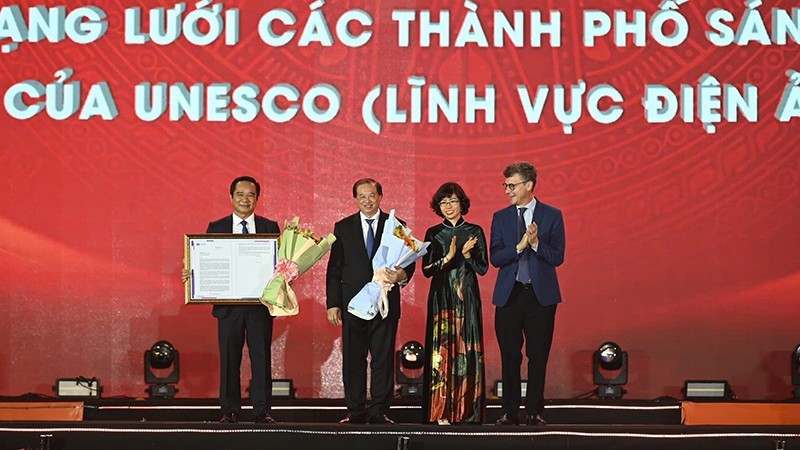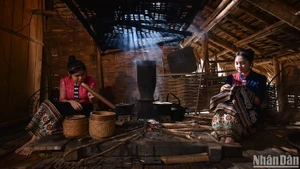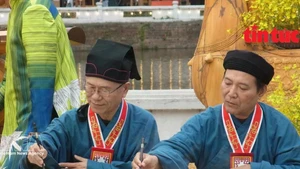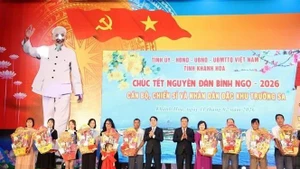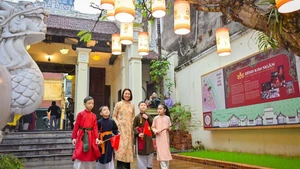At the opening ceremony of the 24th Viet Nam Film Festival on the evening of November 21, Jonathan Baker, Chief Representative of the UNESCO Office in Viet Nam, presented the title of Creative City in Cinema to Ho Chi Minh City.
This title is not only the result of an outstanding application but also a testament to the city’s strong commitment to placing creativity at the heart of its sustainable development strategy, and to acknowledging culture as an essential pillar for a dynamic, resilient, and inclusive urban future.

Jonathan Baker noted that in recent months, Ho Chi Minh City has demonstrated strong leadership and close coordination among cultural institutions, universities, creative communities and private partners, all working together to build a vibrant, creative, and future-oriented cinematic ecosystem.
He emphasised that the ongoing 24th Viet Nam Film Festival taking place in the city this week, alongside the announcement of the Creative City title, is a clear proof of the city’s creative dynamism and development.
The event not only honours the richness of Vietnamese cinema but also opens a space for meaningful dialogue and cooperation with international partners. The diverse cultural activities within the framework of the festival portray Ho Chi Minh City as dynamic, youthful, and hospitable, an identity that naturally aligns with the spirit of the Creative Cities Network.

“One of the city’s greatest strengths is the vitality of its young generation. Their curiosity, creativity, and willingness to explore new forms of expression are gradually shaping a dynamic environment for cinema in particular and for culture in general,” Jonathan Baker shared.
Speaking after receiving the title, Nguyen Van Duoc, Chairman of the Ho Chi Minh City People’s Committee, affirmed that this prestigious title is not an end point but a new beginning, placing greater responsibility on the city.
“We clearly understand that joining UNESCO’s Creative Cities Network means the city must work hand-in-hand with global members to promote sustainable development based on culture and creativity,” he said.

The 24th Viet Nam Film Festival is a wonderful opportunity for Ho Chi Minh City to demonstrate that commitment. Through the film festival’s activities, the city aims to affirm its position as the country’s cinematic centre and as an active, responsible member of the global Creative Cities Network.
To fulfil this commitment, the city will focus on implementing key initiatives outlined in its application to join the Creative Cities Network earlier this year. Specifically, the city will carry out the programme “Creating cinema in schools”, bringing cinema closer to pupils and students, thereby nurturing aesthetic appreciation and cultivating talent. Cinema will be integrated into school subjects, while organising creative competitions and establishing film clubs to train future audiences and artists.
In parallel, the city will implement the project “Colours of life through cinema”, demonstrating its commitment to building a fair society where all people have the opportunity to access and enjoy the arts.
“We will bring the city’s multi-dimensional stories to communities with limited access to cultural activities through mobile screenings, outdoor cinema events, and programmes in parks and metro stations,” Chairman Nguyen Van Duoc affirmed.

In addition, the city is gradually establishing “thematic creative spaces” by developing a “thematic park” at the Sai Gon riverside park area and upgrading a 2,800m² space (at No. 25 Le Quy Don, Xuan Hoa Ward) to create an environment for artistic connection, cinematic honouring activities, and promoting cooperation among creators, businesses, and the public.
Furthermore, the city will organise the “Asian Cinema Cities Network Forum,” forming a support hub to develop cinema and provide opportunities for filmmakers, especially young talents, to exchange expertise, and connect Viet Nam with other countries in the region and Asia through seminars, dialogues, and specialised training sessions. These are also solutions for the city to support administrative procedures, connect filming locations, and build a cinema database, in order to create the most favourable conditions for domestic and international film crews.
“These initiatives are not only promises but concrete actions by Ho Chi Minh City, affirming the city’s continuous efforts in developing its film industry,” Nguyen Van Duoc emphasised.
